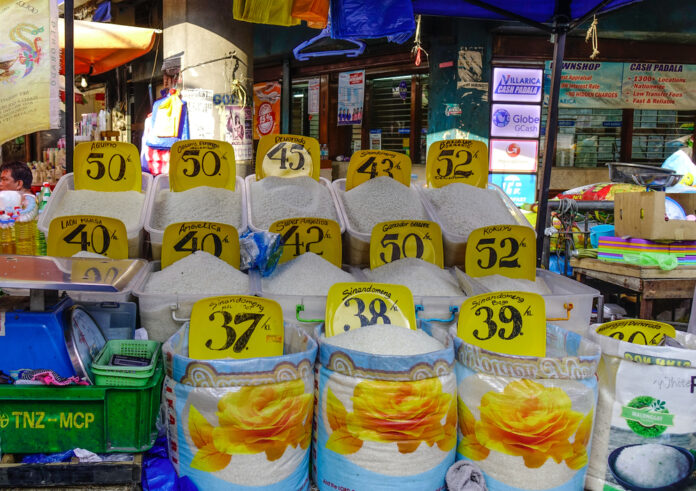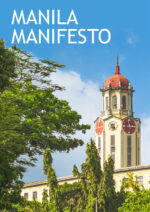Economic Planning Secretary Arsenio Balisacan said the government is looking at other options to shield consumers from exorbitantly priced rice as it prepares to lift the price ceiling imposed on the staple food earlier this month. Among those options, he said, is a temporarily reduction of tariff on imported rice.
The government implemented on 5 September a P41 price cap on a kilo of regular-milled rice and P45 per kilo of well-milled varieties. The measure was meant to temper inflation that continued to hurt consumers’ pockets, and give authorities time to go after rice smugglers and hoarders manipulating supply to drive prices higher.
“The mandated price ceiling, when the order was issued, it was very clear that it was temporary. As soon as we can see a better option of addressing the issue (high prices) and we already achieved the objective, it should be lifted,” Balisacan told a briefing at the presidential palace.
He said economic managers will soon meet to decide on options that would be recommended to President Ferdinand Marcos Jr. as replacement measure for the price cap on the grain. “There are options, for example, like reducing the tariff while prices are rising. What was misunderstood was that we will reduce the tariff regardless of the situation,” he said.
Global prices of rice have remained elevated after India, the world’s largest exporter of the grain, decided in July to restrict export of non-bashmati white rice to temper prices of the food in its domestic market.
The Philippines, according to the US Department of Agriculture, is expected to overtake China as the biggest importer of rice this year—the first time since 2008 when India also stopped exports.
“When prices are rising sharply and you don’t want that to come down to the level of our markets–in retail, wholesale or even the farm gate. Of course we have to find other options of protecting our people. And reducing tariff temporarily would be such an option,” said Balisacan, who is known for his research in agricultural and development economics.
“But in doing so, the exercise that we will do must ensure that farmers are protected; that they are not going to be worse off. That is the objective—nobody should be worse off,” said the economic planning chief, adding: “The only worst off here would be government because there will be less revenue from the tariff. But what is a few billions of losses compared greater suffering of our population from high prices.”







